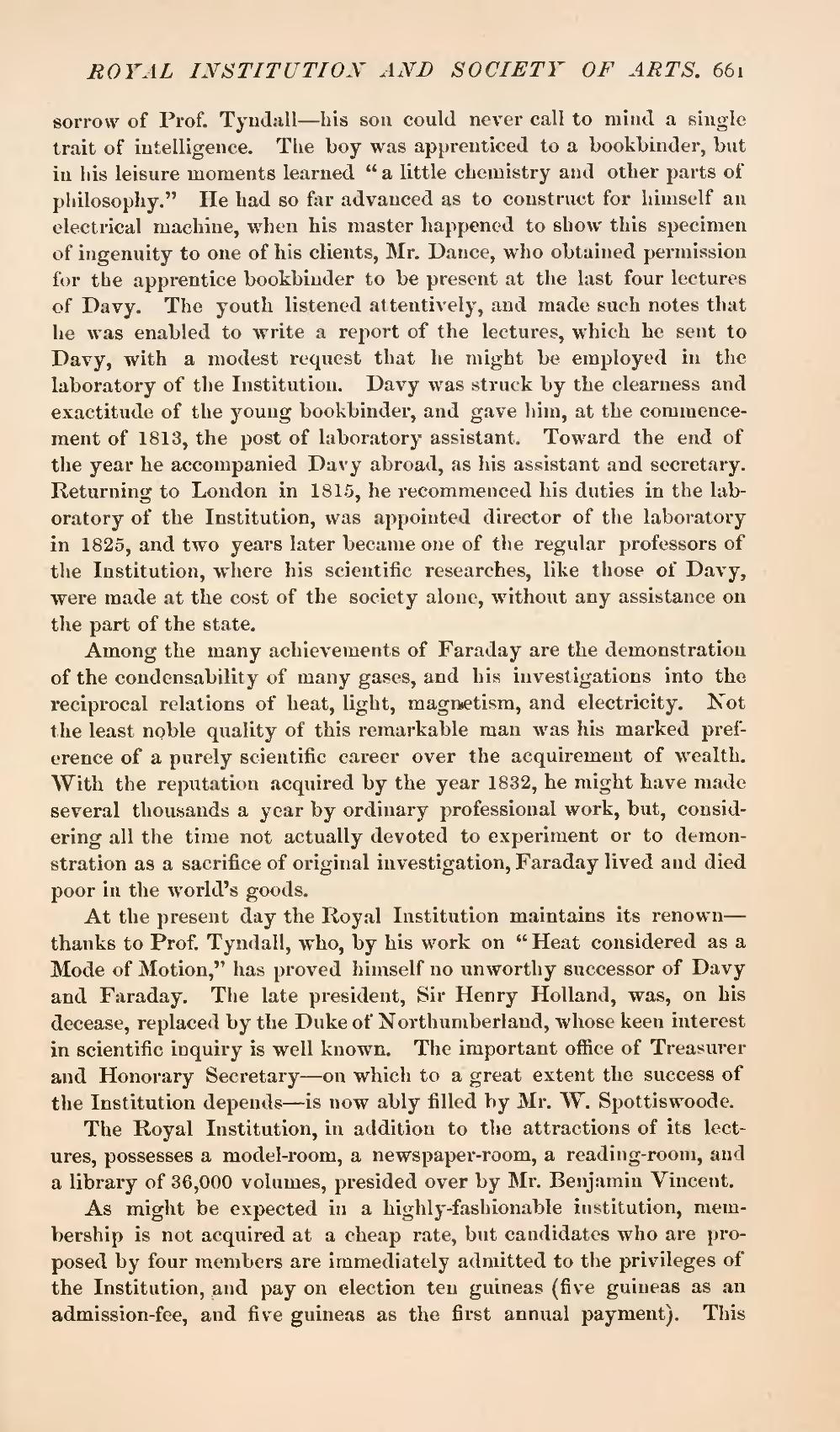sorrow of Prof. Tyndall—his son could never call to mind a single trait of intelligence. The boy was apprenticed to a bookbinder, but in his leisure moments learned "a little chemistry and other parts of philosophy." He had so far advanced as to construct for himself an electrical machine, when his master happened to show this specimen of ingenuity to one of his clients, Mr. Dance, who obtained permission for the apprentice bookbinder to be present at the last four lectures of Davy. The youth listened attentively, and made such notes that he was enabled to write a report of the lectures, which he sent to Davy, with a modest request that he might be employed in the laboratory of the Institution. Davy was struck by the clearness and exactitude of the young bookbinder, and gave him, at the commencement of 1813, the post of laboratory assistant. Toward the end of the year he accompanied Davy abroad, as his assistant and secretary. Returning to London in 1815, he recommenced his duties in the laboratory of the Institution, was appointed director of the laboratory in 1825, and two years later became one of the regular professors of the Institution, where his scientific researches, like those of Davy, were made at the cost of the society alone, without any assistance on the part of the state.
Among the many achievements of Faraday are the demonstration of the condensability of many gases, and his investigations into the reciprocal relations of heat, light, magnetism, and electricity. Not the least noble quality of this remarkable man was his marked preference of a purely scientific career over the acquirement of wealth. With the reputation acquired by the year 1832, he might have made several thousands a year by ordinary professional work, but, considering all the time not actually devoted to experiment or to demonstration as a sacrifice of original investigation, Faraday lived and died poor in the world's goods.
At the present day the Royal Institution maintains its renown—thanks to Prof. Tyndall, who, by his work on "Heat considered as a Mode of Motion," has proved himself no unworthy successor of Davy and Faraday. The late president, Sir Henry Holland, was, on his decease, replaced by the Duke of Northumberland, whose keen interest in scientific inquiry is well known. The important office of Treasurer and Honorary Secretary—on which to a great extent the success of the Institution depends—is now ably filled by Mr. W. Spottiswoode.
The Royal Institution, in addition to the attractions of its lectures, possesses a model-room, a newspaper-room, a reading-room, and a library of 36,000 volumes, presided over by Mr. Benjamin Vincent.
As might be expected in a highly-fashionable institution, membership is not acquired at a cheap rate, but candidates who are proposed by four members are immediately admitted to the privileges of the Institution, and pay on election ten guineas (five guineas as an admission-fee, and five guineas as the first annual payment). This
